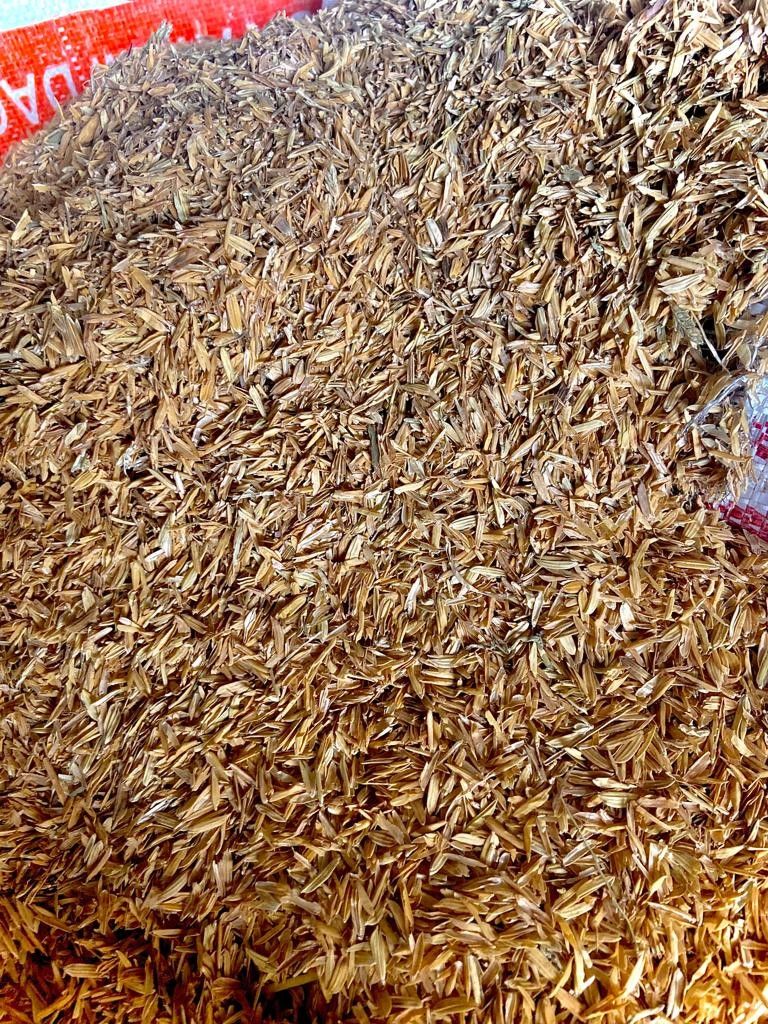1. What is Rice Husk?
Rice husk, also known as rice hulls, is an agricultural byproduct obtained from the outer shell of rice grains. As a growing medium, rice husk is gaining popularity due to its lightweight, durable, and eco-friendly characteristics. It is used in various horticultural applications to enhance soil conditions and support plant growth.
2. Benefits of Using Rice Husk as a Growing Medium
Excellent Drainage: Rice husk provides exceptional drainage due to its lightweight and porous nature. It prevents waterlogging and root rot by allowing excess water to flow through, ensuring that plants have a well-aerated environment.
Improved Soil Aeration: The porous structure of rice husk enhances soil aeration, which is crucial for healthy root development. Increased oxygen availability promotes stronger root systems and overall plant vitality.
Enhanced Water Retention: Rice husk retains moisture while allowing excess water to drain away. This balanced water retention is beneficial for maintaining consistent moisture levels, especially in plants that require steady hydration.
pH Neutrality: Rice husk is pH neutral, making it suitable for a wide range of plants. It does not alter soil pH, allowing for a stable growing environment where plants can thrive.
Sustainable and Eco-Friendly: Rice husk is a sustainable and recyclable material, making it an environmentally friendly choice for gardening. Using rice husk helps reduce agricultural waste and promotes a circular economy.
Organic Matter Addition: Rice husk decomposes slowly, adding organic matter to the soil over time. This process improves soil structure and fertility, benefiting plant growth.
3. How to Use Rice Husk in Gardening
Soil Amendment: Incorporate rice husk into garden soil to enhance drainage, aeration, and moisture retention. A typical recommendation is to mix 10-20% rice husk by volume into the soil.
Potting Mix: Create a balanced potting mix by combining rice husk with other components such as compost, peat moss, and perlite. Rice husk typically makes up 20-30% of the potting mix to improve water and nutrient management.
Top Dressing: Apply rice husk as a top dressing for existing garden beds or potted plants. This method helps improve soil structure, reduce moisture evaporation, and support plant health.
Composting: Add rice husk to compost piles to enhance the composting process. It helps aerate the compost, improve drainage, and add valuable organic matter.
Hydroponics: Rice husk can be used in hydroponic systems as a growing medium. Its lightweight and moisture-retaining properties make it a valuable addition to hydroponic setups.
4. Best Plants for Rice Husk
Vegetables: Rice husk is ideal for growing vegetables such as tomatoes, cucumbers, and peppers. Its drainage and aeration properties support healthy root systems and robust vegetable growth.
Flowering Plants: Flowering plants like roses, marigolds, and geraniums thrive in rice husk-amended soil. The improved soil structure leads to healthier plants and more vibrant flowers.
Houseplants: Houseplants including ferns, orchids, and snake plants benefit from rice husk’s balanced moisture and aeration. It provides a stable environment for indoor plant growth.
Fruit Trees: Fruit trees such as apple, pear, and citrus trees grow well in soil mixed with rice husk. It promotes strong root systems and enhances fruit yield and quality.
Herbs: Herbs like basil, cilantro, and parsley grow well in rice husk-enriched soil. The stable moisture and aeration ensure healthy and aromatic herbs.
5. Maintenance and Care
Watering Tips: Adjust your watering schedule when using rice husk, as it helps retain moisture while allowing excess water to drain. Ensure thorough watering but avoid overwatering to prevent root issues.
Fertilization: Although rice husk adds organic matter to the soil, regular fertilization is still important. Use a balanced fertilizer to complement the benefits of rice husk and support plant nutrition.
Monitoring Soil Conditions: Regularly check soil moisture and structure. Rice husk improves soil conditions, but maintaining overall soil health is essential for optimal plant growth.












